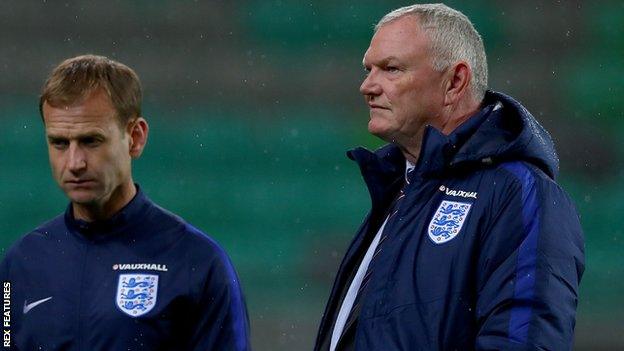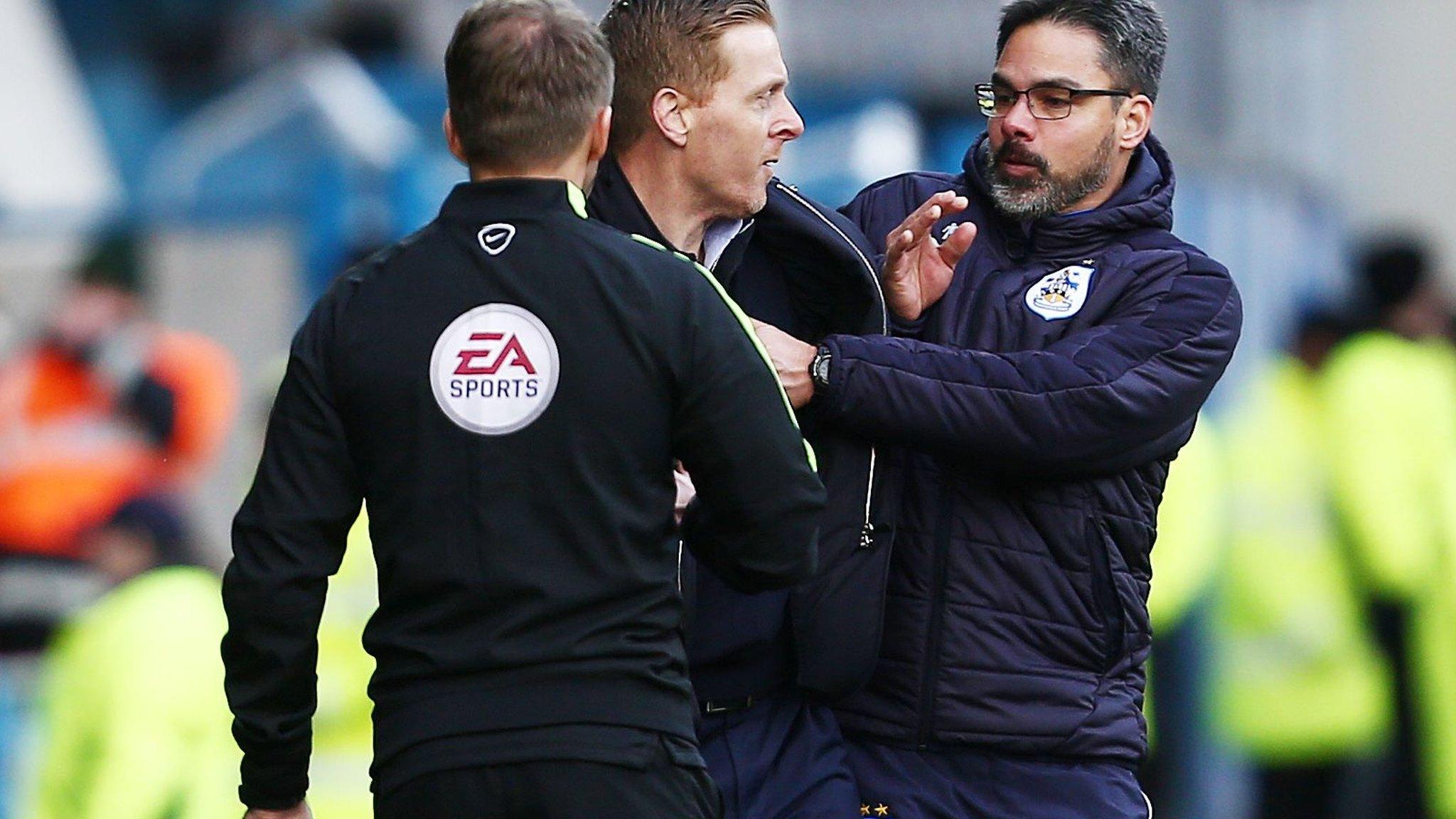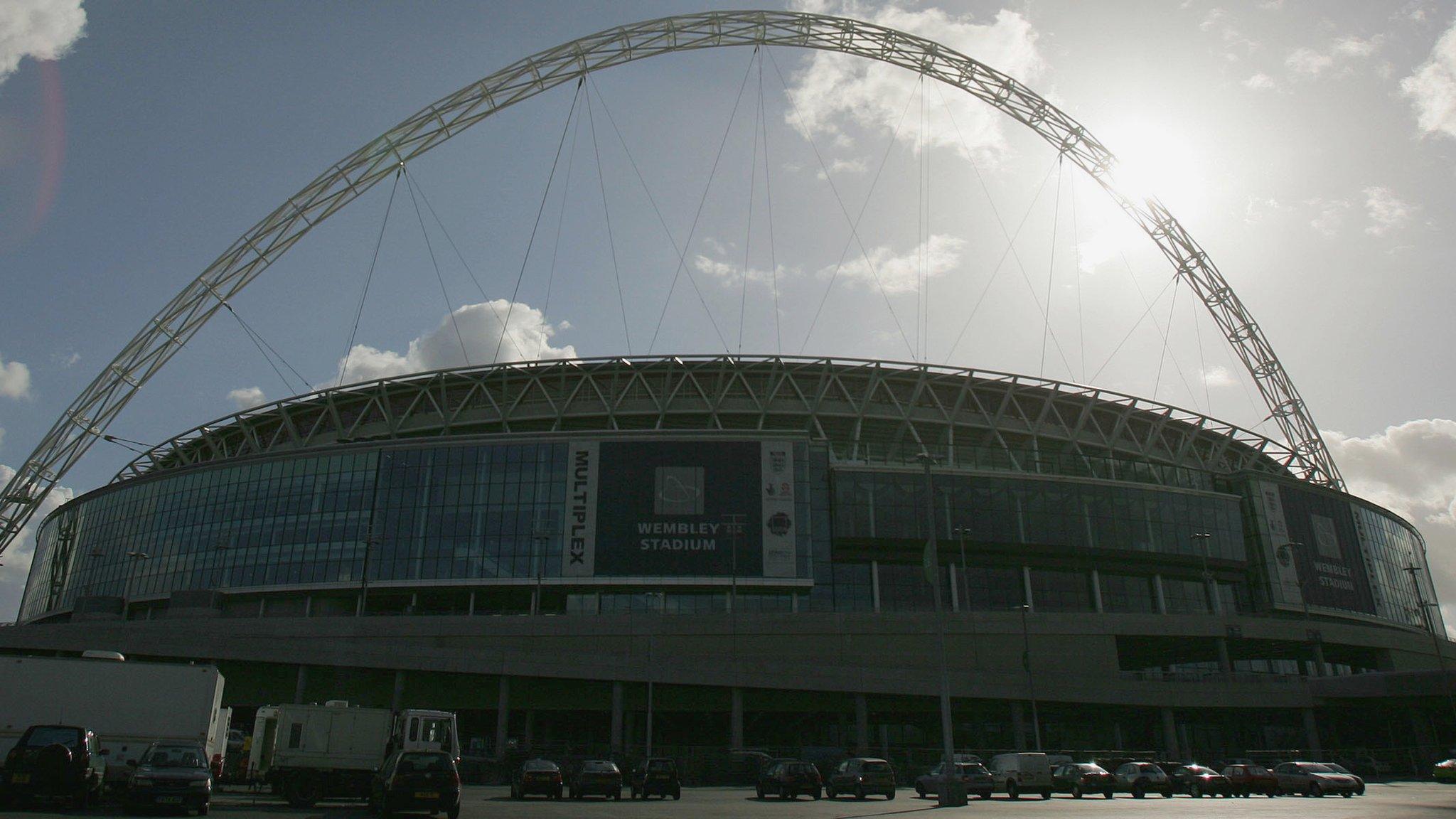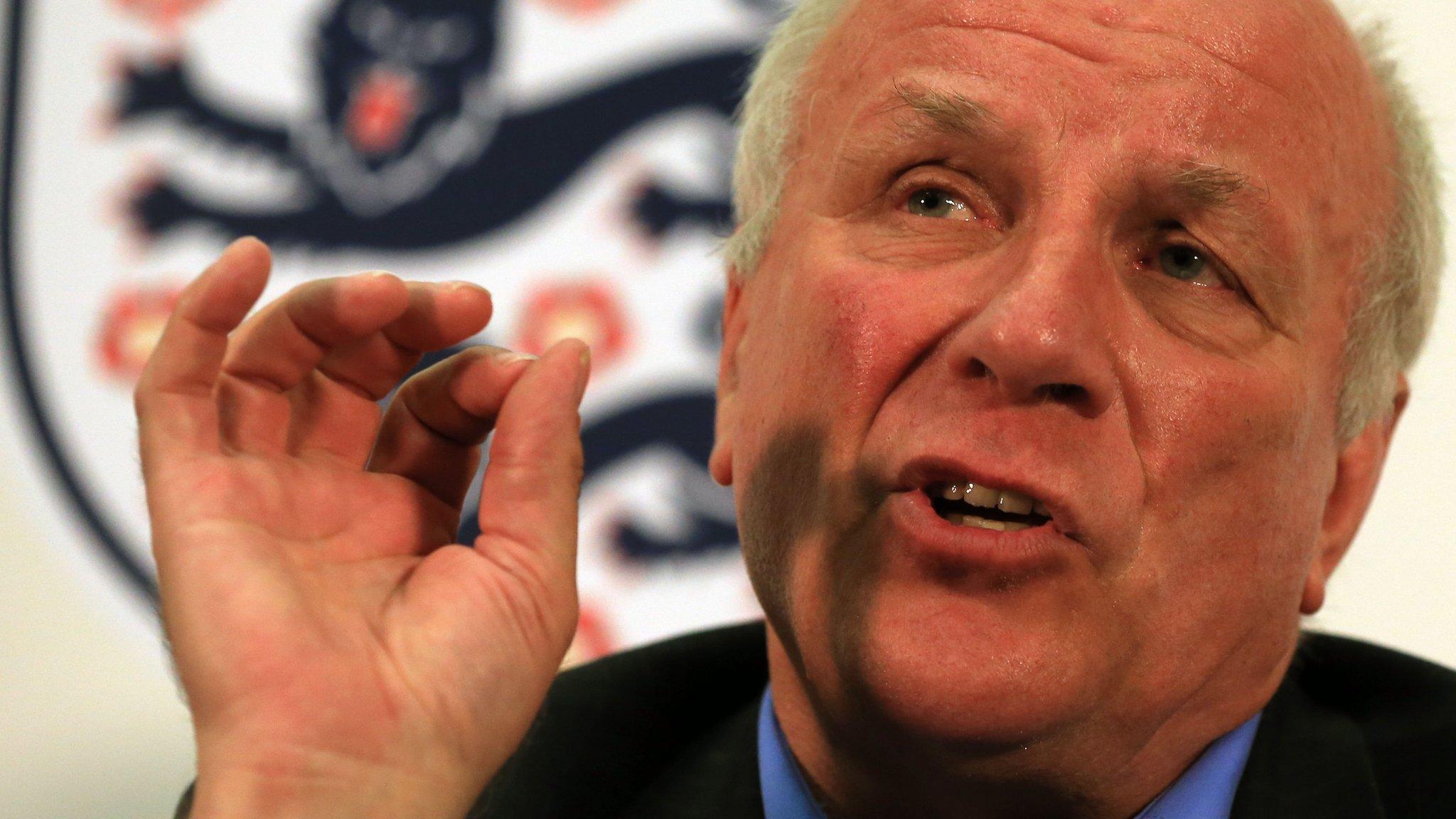FA reforms: Chairman Greg Clarke to quit if government does not back plans
- Published

Former Football League chairman Greg Clarke was appointed FA chairman in August
Football Association chairman Greg Clarke says he will quit if the organisation cannot win government support for its reform plans.
A motion of no confidence in the FA is to be debated in the House of Commons on Thursday after five former FA executives said the governing body had failed to "self-reform".
Clarke "strongly disputes" the motion, but accepts FA governance must change.
"I don't believe that the FA is failing football," he said.
Clarke said the FA had a set of proposals "to improve our governance", which it would ratify and then take to sports minister Tracey Crouch for her approval.
"Delivering real change is my responsibility and I firmly believe this is critical for the future of the game," Clarke added.
"If the government is not supportive of the changes when they are presented in the coming months, I will take personal responsibility for that.
"I will have failed. I will be accountable for that failure and would in due course step down from my role."
What will happen on Thursday?
The Commons Culture, Media and Sport Select Committee is leading an inquiry into football governance and as part of that, committee members have secured a debate in the Commons to ask whether the FA can "comply fully with its duties".
They will also discuss whether reform is impossible within the FA's structure, and whether new laws should be proposed.
But Clarke said the FA was "not sitting idly by", adding: "Change won't be easy, but I am confident it will happen - and it will be substantial."
He says the governing body needs to:
Be more diverse;
Be more open about decision-making;
Better represent those playing the game.
Damian Collins MP: 'We no longer have any confidence'
In July, Crouch said the FA would lose its £30m to £40m of public funding if it did not reform.
Then, in December, she announced the government would bring in legislation to force through reforms if the governing body did not make changes itself.
Select committee chairman Damian Collins MP revealed on Friday that the FA had been given six months to meet the government guidance on best practice for sports governance but had failed to do so.
However, Clarke said he hoped those attending the debate were aware of "the FA's duties and the great work we are actually doing".
"Many people hear talk of an old-fashioned FA, but they don't actually realise how it works or what it does. That's a real shame," he said.
Clarke said the FA was "supporting the game from top to bottom" and:
It was investing record amounts into the grassroots game and changing the face of football in England.
It had invested over £65m into grassroots football last year - more than any governing body in the world invests into a national sport.
It was adapting to flexible formats of the game, with 12 million people playing every year.
It had a plan in place to double its number of female players by 2020.
It provided £22m every year for desperately needed new playing facilities.
Analysis
BBC Radio 5 live sports news correspondent Richard Conway
Whisper it... but could change within the FA's corridors of power finally happen?
The debate around governance reform has been going on for decades. Despite that, not a lot has changed since the FA was founded in the mid-19th Century.
Greg Clarke has upped the stakes though. He will resign as chairman if he fails to deliver.
It's a noble gesture but one which speaks to the confidence he clearly has in achieving some form of modernisation and gaining government approval.
But his statement goes further, and Clarke clearly has the MPs who are staging Thursday's debate in his sights.
As I reflected last week, there's growing indignation within Wembley over continually being called a failing organisation.
There's a recognition that work needs to be done to increase diversity and to change a board structure whose members have been criticised for representing vested interests.
But, as Clarke reflects, the FA's view is that it is very much meeting its role as a governing body.
To that extent the statement is indicative of a leadership team determined to fight back against its critics and an attempt to recalibrate opinion, given their belief in the positive role the FA plays in promoting and protecting football.
- Published7 February 2017

- Published3 February 2017

- Published12 December 2016
